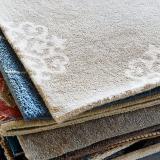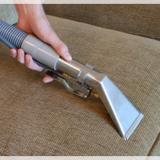Our Blog
Please feel free to post a question or just join the conversation.

Learn how to clean cat urine from rugs and eliminate tough pet odors. In this guide, we’ll cover DIY cleaning tips, the best enzymatic cleaners, and when to call in professional rug cleaning services in the Boston and Cape Cod area.
How to Remove Cat Urine from Rugs: Cleaning Tips & Professional Advice
Cat urine on rugs is one of the toughest odors and stains to deal with. Not only does it leave behind a strong ammonia smell, but if not treated quickly, it can damage rug fibers, cause permanent staining, and even impact your family’s health. In this guide, we’ll explain why cat urine is so persistent, how to properly clean it at home, and when it’s time to call in professional rug cleaners.
Why Does Cat Urine Smell So Strong?
Cat urine isn’t just water—it contains urea, uric acid, hormones, electrolytes, and other waste chemicals. When urea breaks down, it releases compounds that smell like ammonia. Over time, uric acid crystals bond tightly to rug fibers and can re-release odors whenever humidity rises.
This is why cat urine odor lingers, and why regular household cleaners or masking sprays often fail. Left untreated, these odors can become stronger and may even trigger respiratory irritation in sensitive individuals, especially children with asthma or allergies.
Why Cats Urinate on Rugs
Urine marking is a natural behavior. Male cats often spray to mark territory, while female cats may do so when stressed or during mating cycles. Common triggers include:
Changes in the home (new pets, moving, new baby, or altered schedules)
Conflicts with other cats inside or outside
Stress or anxiety from environmental changes
Understanding the cause can help prevent repeat accidents while you tackle the cleaning.
Finding Cat Urine Stains on Rugs
Sometimes stains are obvious, but other times they’re hidden until the odor becomes strong. To locate urine spots:
Use a black light – In a dark room, shine a black light a few feet above the rug. Urine spots will glow.
Check common areas – Corners, furniture edges, and room perimeters are common marking zones.
Mark the spots – Use sticky notes or tape to keep track of where cleaning is needed.
DIY Cat Urine Cleaning at Home
If you catch the accident early, quick action is your best defense.
Fresh Urine Stains
Blot, don’t rub – Use paper towels or a wet/dry vacuum to absorb as much liquid as possible.
Apply an enzymatic cleaner – These cleaners contain safe bacteria and enzymes (protease, urease, amylase, etc.) that break down urine into harmless substances like water and carbon dioxide.
Let it air dry – Enzymes need time to work. Keep the area damp for at least 12–24 hours for best results.
- You may even want to repeat this process after 24 hours
Older or Set-In Stains
Lightly dampen the area with water before applying an enzyme cleaner. This reactivates uric acid crystals.
Apply enzymatic cleaner and allow to dry naturally.
Repeat if necessary – Tough stains often require two or three treatments.
Professional Rug Cleaning for Cat Urine
For deep, stubborn, or repeated urine accidents, professional cleaning may be necessary. A trained rug cleaner will:
Use special acid rinses to break down uric acid crystals.
Perform deep extraction to reach contamination in the rug backing.
Apply professional-grade enzyme or hydrogen peroxide treatments.
⚠️ Note: Over-wetting rugs (especially wool, silk, cotton, or jute) can damage fibers and dyes. Professionals understand how to balance aggressive cleaning with fiber protection.
Risks of Cat Urine Damage to Rugs
Even with the best cleaning efforts, cat urine can sometimes leave permanent issues, such as:
Yellowing or discoloration of fibers
Dye migration (colors bleeding into one another)
Fiber weakening
Odor penetration into padding or flooring beneath
In severe cases, rugs may require replacement padding or even subfloor treatment to fully eliminate odors.
Final Thoughts
Cat urine on rugs is one of the most difficult pet stains to remove. While enzymatic cleaners and quick action can help with fresh accidents, professional rug cleaning is often the best solution for set-in odors and stains.
If you’re dealing with recurring cat urine issues, don’t wait—acting quickly can mean the difference between saving your rug or replacing it.
👉 For expert rug and carpet cleaning services in the Greater Boston and Cape Cod area, contact Alec’s Carpet & Upholstery Cleaning LLC. With decades of experience and specialized techniques, we can restore your rugs and protect your home from lingering pet odors. In severe cases, you may find that the only remedy is to send the rug out to a rug cleaning company that specializes in a pit washing, to totally rinse out the cat urine. You can call our office at 781-871-1415 or e-mail Alec at Alecscarpetcleaning.com
note_stackRelated Posts
- Best Cloth to Use for Carpet Spills | Expert Cleaning Tips - Spot Cleaning Apr 10
- Why Carpet Stains Keep Coming Back | Expert Advice - Spot Cleaning Apr 5
- Carpet Stain Removal Tips: How to Clean Spills the Right Way - Spot Cleaning Mar 10
- How to Remove Candle Wax from Carpets & Rugs | Alec’s Carpet Cleaning - Spot Cleaning Jan 31
- Rust Stain Removal on Carpets | Safe & Professional Carpet Cleaning - Spot Cleaning Jul 20
- Ink Stain Removal on Upholstery | Professional Cleaning Tips - Spot Cleaning Jul 12
- How to Remove Furniture Dents from Carpets & Rugs | Boston Carpet Cleaning Experts - Spot Cleaning Jan 2
- How to Remove Blood Stains from Carpet & Upholstery | Alec’s - Spot Cleaning Dec 26
- How to Handle Pet Accidents on Your Carpets and Rugs - Spot Cleaning Dec 10
- How to Remove Red Wine Stains from Carpet and Upholstery - Spot Cleaning Nov 28
- Halloween Stains? Here’s How to Handle Candy Mishaps on Your Rugs and Upholstery - Spot Cleaning Oct 31
- Fresh Nail Polish Spill? Don’t DIY – Call Boston Carpet Cleaning Experts - Spot Cleaning Mar 4
- Why DIY Carpet Spot Cleaning Can Make Stains Worse | Alec’s Carpet Cleaning - BlogSpot Cleaning Aug 11
Blog Categories
-
Carpet & Upholstery Cleaning (15)
-
 Carpet Cleaning (15)
Carpet Cleaning (15)
-
 Spot Cleaning (14)
Spot Cleaning (14)
-
Uncategorized (8)
-
 About Rugs (5)
About Rugs (5)
-
 Upholstery Cleaning (5)
Upholstery Cleaning (5)
-
 About Carpets (3)
About Carpets (3)
-
Outdoor Cushion Cleaning (2)
-
 Fabric Protection (2)
Fabric Protection (2)
-
 Leather Upholstery (2)
Leather Upholstery (2)
-
 Fabrics (1)
Fabrics (1)
-
 Stains on Carpets (1)
Stains on Carpets (1)
-
 Discussions on Carpet & Upholstery (1)
Discussions on Carpet & Upholstery (1)
-
 News (1)
News (1)
